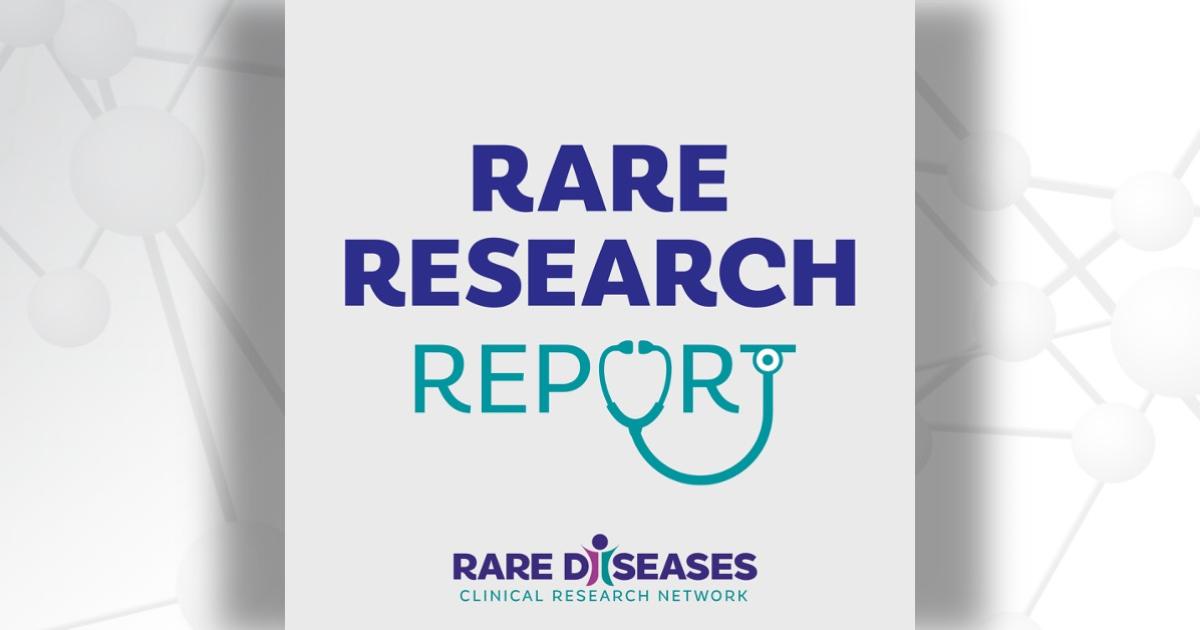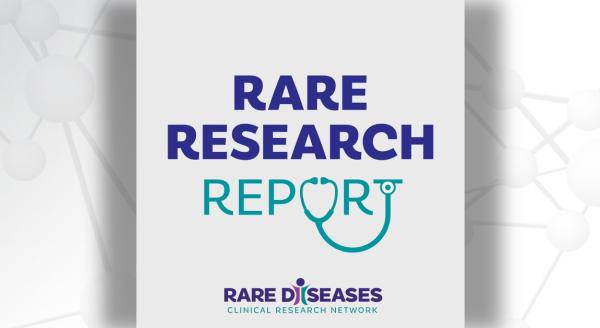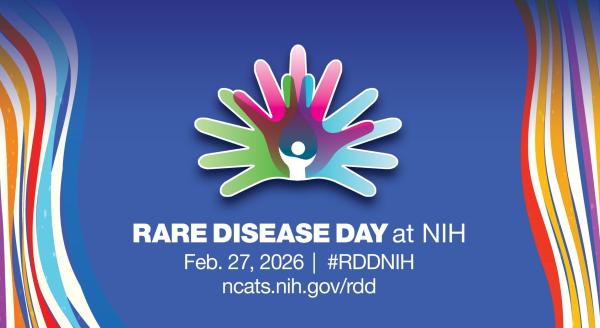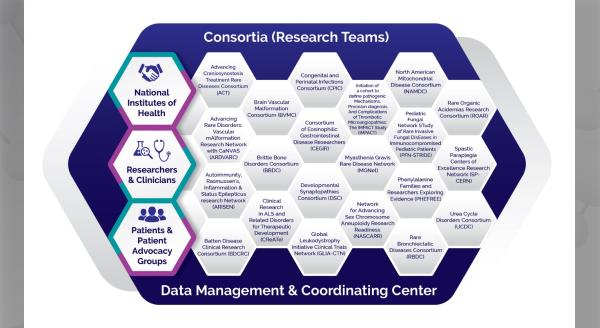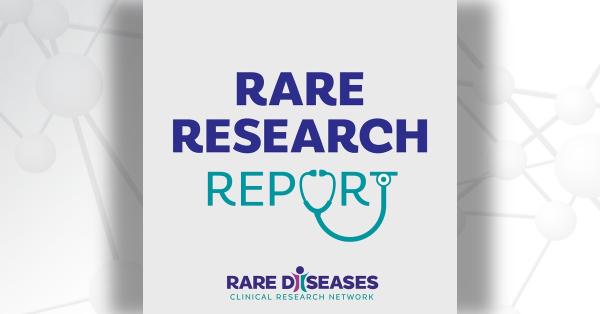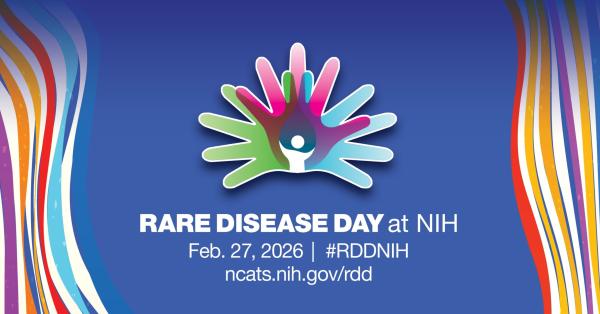Each month, we share summaries of recent Rare Diseases Clinical Research Network (RDCRN) grant-funded publications. Catch up on the latest RDCRN research below.
Jump to:
- Brain Vascular Malformation Consortium (BVMC)
- Global Leukodystrophy Initiative Clinical Trials Network (GLIA-CTN)
- Myasthenia Gravis Rare Disease Network (MGNet)
Listen to these summaries on the Rare Research Report podcast.
Brain Vascular Malformation Consortium (BVMC)
Assessing Disparities in Access to Clinical Care and Research for Patients with Hereditary Hemorrhagic Telangiectasia
Hereditary hemorrhagic telangiectasia (HHT) is an inherited disorder of the blood vessels that can cause excessive bleeding. Patients with rare diseases like HHT are more likely to experience increased health outcome disparities due to inequitable healthcare.
In this study, researchers assessed disparities in access to clinical care and research for patients with HHT. First, the team collected race data from BVMC study recruits at HHT clinics in Toronto and San Francisco. Next, they compared the racial differences between HHT patients recruited for research and HHT patients in the general population.
Results reveal preliminary evidence of racial differences between HHT center clinic patients and surrounding populations. Findings also show an association between race and enrollment to HHT research studies. Authors note that this study lays the foundation for beginning to address disparities in HHT care and research.
Scott G, Agundiz A, Nelson J, Hetts S, Clancy M, Kim H, Faughnan ME; Brain Vascular Malformation Consortium HHT Investigator Group. Assessing racial differences in North American hereditary hemorrhagic telangiectasia study recruitment and care. Orphanet J Rare Dis. 2025 Aug 28;20(1):461. doi: 10.1186/s13023-025-03883-1. PMID: 40877917; PMCID: PMC12392467.
Global Leukodystrophy Initiative Clinical Trials Network (GLIA-CTN)
Working with Caregivers to Capture Lived Experiences of Children with Multiple Sulfatase Deficiency
Rare diseases deeply affect children and families, but their experiences are only incompletely understood—especially for extremely rare conditions like multiple sulfatase deficiency (MSD), a leukodystrophy.
In this study, researchers worked directly with caregivers to capture lived experiences of children with MSD. Nineteen caregivers shared information about their child’s daily skills, emotional health, and overall quality of life, as well as their own well-being. The team used several established questionnaires to measure these areas and compared the results to data from metachromatic leukodystrophy (MLD), a related rare disorder.
Results showed that although children with MSD face significant challenges with daily activities, caregivers reported that emotional well-being was a strength, underscoring the incredible resiliency of the rare disease community. When the team used caregiver-centered tools, they captured a richer picture of what matters most to families, such as coordination of care and emotional support. Caregivers themselves experienced major emotional and practical strain, often feeling grief and isolation, similar to those caring for children with MLD.
Authors note that these insights show why including patient and caregiver perspectives in research is critical. Their input helps identify meaningful outcomes, improves the design of clinical trials, and ensures that future treatments focus on what truly matters to families.
Gavazzi F, Yu E, Tashnim Z, Woidill S, Sevagamoorthy A, Arnold K, Ammann-Schnell L, Groeschel S, Krägeloh-Mann I, Breitling V, Schlotawa L, Ahrens-Nicklas R, Adang LA. Exploration Into Lived Experiences of Multiple Sulfatase Deficiency-Affected Individuals and Their Families. J Child Neurol. 2025 Nov;40(10):852-861. doi: 10.1177/08830738251339848. Epub 2025 May 14. PMID: 40368343; PMCID: PMC12240456.
Myasthenia Gravis Rare Disease Network (MGNet)
Evaluating the Therapeutic Potential of Immunoglobin G- and Immunoglobin M-Specific Proteases in Acetylcholine Receptor-Positive Myasthenia Gravis
Myasthenia gravis (MG) is an autoimmune neuromuscular disorder in which antibodies targeting the acetylcholine receptor (AChR) cause muscle weakness. Current therapies help many patients, but some remain refractory, underscoring the need for more personalized approaches.
In this study, researchers evaluated the therapeutic potential of S-1117, a pan-IgG–specific protease engineered to selectively cleave the Fcγ region of pathogenic AChR-IgG. Using live cell-based assays with monoclonal autoantibodies and patient serum, the team showed that S-1117 effectively impaired IgG-mediated complement activation on AChR-expressing cells.
Importantly, the work uncovered a previously unrecognized MG subset driven by pathogenic AChR-IgM, which either amplified IgG-mediated injury or served as the primary source of complement activation. An IgM-specific protease fully suppressed IgM-driven pathogenicity, and combining IgG- and IgM-targeted enzymes achieved broader inhibition.
These findings reveal critical disease heterogeneity in MG and highlight Ig-specific proteases as a promising precision-medicine strategy to improve treatment for patients with antibody-mediated weakness.
Bayer AC, Sanmarco LM, Pellerin A, Masi G, Plasencia A, Anderson JM, Nowak RJ, Damato V, Massacesi L, Pham MC, Khani-Habibabadi F, Vital H, Higginson-Scott N, Otipoby KL, Xing Y, Mascanfroni ID, O'Connor KC. Therapeutic IgG- and IgM-specific proteases disarm the acetylcholine receptor autoantibodies that drive myasthenia gravis pathology. Proc Natl Acad Sci U S A. 2025 Oct 28;122(43):e2505984122. doi: 10.1073/pnas.2505984122. Epub 2025 Oct 21. PMID: 41118207.
The Rare Diseases Clinical Research Network (RDCRN) is funded by the National Institutes of Health (NIH) and led by the National Center for Advancing Translational Sciences (NCATS) through its Division of Rare Diseases Research Innovation (DRDRI). Now in its fifth five-year funding cycle, RDCRN is a partnership with funding and programmatic support provided by Institutes, Centers, and Offices across NIH, including the National Institute of Neurological Disorders and Stroke, the National Institute of Allergy and Infectious Diseases, the National Institute of Diabetes and Digestive and Kidney Diseases, the Eunice Kennedy Shriver National Institute of Child Health and Human Development, the National Institute of Arthritis and Musculoskeletal and Skin Diseases, the National Heart, Lung, and Blood Institute, the National Institute of Dental and Craniofacial Research, the National Institute of Mental Health, and the Office of Dietary Supplements.

